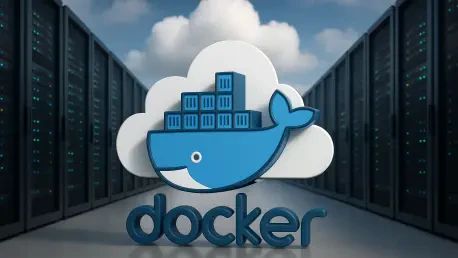Docker, Inc. has introduced an exciting expansion to its Docker Compose tool that promises to transform artificial intelligence (AI) development. By integrating YAML files, Docker now allows developers to define AI architectures more efficiently. This update, unveiled at the WeAreDevelopers World Congress, includes Docker Offload—still in its beta stage—that enables developers to leverage Docker Desktop for shifting AI model executions to cloud-based GPUs from giants like Google and Microsoft. These changes aim to streamline AI application development by granting easier access to APIs such as CrewAI, Embabel, and LangGraph, among others, directly through the Docker Compose file. With over 500 users having tested these tools in a closed beta, Docker is poised to make a significant impact on AI development.
Accelerating AI Development with Docker Compose
Leveraging Docker Offload and Cloud Integration
The inclusion of Docker Offload in Docker’s recent update stands as a testament to the evolving landscape of AI development tools. This feature exemplifies Docker’s commitment to providing developers with cutting-edge solutions that optimize the process by relocating heavy computing demands to external resources. By transferring the execution of AI models to powerful cloud-based GPUs provided by leading tech companies like Google and Microsoft, Docker is minimizing the limitations typically faced by developers working in local environments. This seamless offloading not only accelerates processing capabilities but also reduces the cost barriers associated with acquiring sophisticated hardware.
Furthermore, the integration with Docker Compose enhances flexibility by simplifying the incorporation of various AI models into projects. Developers can now enjoy a streamlined workflow, where defining complex AI architectures is achievable within a familiar environment. Leveraging YAML files adds a layer of simplicity, which is crucial for reducing development time and operational headaches. These advancements facilitate a more inclusive approach to AI development, where accessibility to advanced tools and the ability to wield them efficiently is no longer a privilege of a few.
Integrating AI Agents and Local Inference Engines
Docker’s strategic integration of the Model Context Protocol (MCP) Gateway is another significant advancement. This enhancement facilitates uncomplicated communication among diverse AI agents, ensuring cohesive operation between multiple systems and components. The core goal behind this innovation is to promote a collaborative ecosystem where AI models and applications can thrive, free from the interoperability issues that have historically slowed AI progress. Communicational fluidity among AI agents is critical for ensuring their proper operation within larger networks of interconnected services, paving the way for more sophisticated, intelligent applications.
Additionally, the Docker Model Runner introduces an AI inference engine into Docker Desktop using llama.cpp, which brings the potency of large language models (LLMs) to local machines. By making LLMs accessible via the OpenAI API locally, Docker is bridging the gap between local development constraints and the expansive capabilities of AI. This update empowers developers with local resources that simulate enterprise-level capabilities, contributing to cost efficiency by minimizing dependency on continuous cloud services. By embedding an inference engine locally, Docker fosters an environment where immediate testing, iteration, and refinement of AI models are not just possible but practical. This further underscores Docker’s dedication to reducing the barriers between developers and cutting-edge AI development.
Industry Impacts and Future Outlook
Developer Insights and Market Trends
The evolution of Docker Compose reflects broader industry trends indicating the increasing integration of AI capabilities into new software applications. According to a recent survey conducted by Futurum Group, developers remain divided on the adoption of new AI-specific tools versus enhancing traditional ones with AI features. However, significant investments are being planned in AI technologies, suggesting a robust future for AI-driven development environments. This echoes the undeniable shift towards solutions that incorporate AI effortlessly into existing frameworks, emphasizing the importance of enhancing familiar development tools rather than completely revamping them.
A narrative is building around the competitive pressures that organizations face to deploy AI capabilities swiftly. This sentiment is echoed through industry actions, where efficiency and cost-effectiveness in AI development are paramount. Docker’s recent tool enhancements reflect an understanding of this pressure, providing platforms that allow developers to integrate AI with relative ease. By maintaining a focus on reducing setup complexity and promoting operational fluidity, Docker’s innovations are curating a landscape where businesses can keep pace with rapid market demands.
Future Directions and Strategic Positioning
Docker’s latest update introduces Docker Offload, showcasing the dynamic changes in AI development tools. This feature highlights Docker’s dedication to equipping developers with innovative solutions by offloading intensive computing tasks to external resources. By shifting the execution of AI models to robust cloud GPUs offered by tech giants like Google and Microsoft, Docker alleviates the common constraints faced by developers using local setups. This offloading streamlines processing power and reduces costs linked to acquiring high-end hardware.
Additionally, the seamless integration with Docker Compose boosts flexibility, simplifying the integration of diverse AI models into projects. Developers benefit from a more efficient workflow, where defining intricate AI architectures is seamlessly integrated into a familiar setup. Utilizing YAML files adds ease, vital for cutting down development time and operational frustrations. These advancements foster broader access to AI development, ensuring sophisticated tools are accessible to many, not just a select few with extensive resources.









